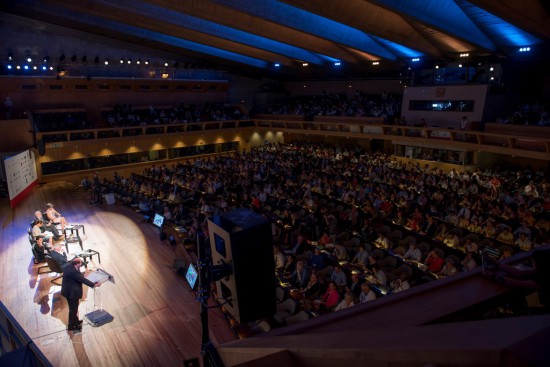Angel Gurría, secretary-general of the OECD, gave a tour-de-force speech in London on 3rd of June 2015 as part of the organisation’s build-up to COP21 in Paris. He drew upon “Aligning Policies for a Low-carbon Economy“, an OECD report that was produced with the International Energy Agency, the Nuclear Energy Agency and the International Transport Forum, but his speech was not a dry litany of managerial tweaks that civil servants might make to public policy.
Gurría challenged assumptions about the impact of a low-carbon energy system on economic growth, business competitiveness, and also development goals. “There’s a flawed but deeply rooted idea that development comes before decarbonisation. That there is a certain inevitable sequence. While developing economies will inevitably increase their emissions, there is no iron law in the 21st century that it has to be as fossil intensive as it has been in the past. Viable alternatives are already commercially available.” He bemoaned the lack of a price on carbon and the scale of investment into unabated coal-fired electricity generation. Then the former minister of finance laid into the discount rate – used to compare costs and benefits that occur in different time periods – which leads to “ …our grandchildren end up having no value – simple as that! Brutal as that!” This was a speech that could have been made at a climate change demo. Instead, I was at sitting in the City of London, in the company of investors and representatives of some of the biggest companies in the world. While some may have disagreed with his analysis, the applause extended well beyond politeness. But it is not unusual nowadays for establishment figures to call in strident terms for action on climate change. Lord Nicholas Stern, who introduced Gurría, was among the first, and the latest being Pope Francis.
Read more ›
Follow Sussex Energy Group





